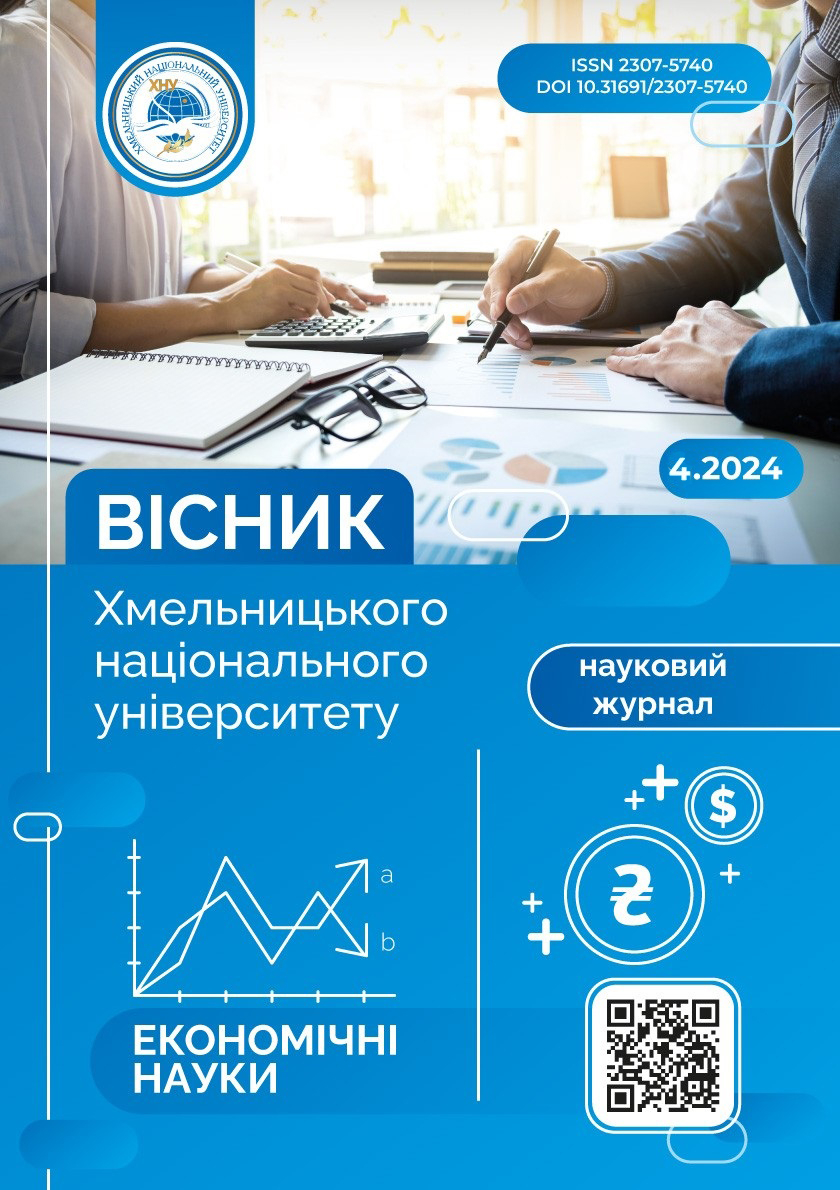CLIMATIC LIMITATIONS OF ECONOMIC GROWTH AS CHALLENGES OF FINANCING INTERNATIONAL INVESTMENT PROJECTS IN THE SPHERE OF CIRCULAR ECONOMY
DOI:
https://doi.org/10.31891/2307-5740-2024-332-11Keywords:
circular economy, climate change, business model, natural resources, emissions, environment, climate policy, international investment projectAbstract
The purpose of the article is to determine the impact of climate change on (macro)economic interdependencies, such as: supply and demand balance; production and consumption; price stability; financial stability, etc. The globalization of production and supply chains, the formation of a new international division of labor (global production and industrial centers VS global centers of trade in services) leads to a distortion of the geography of greenhouse gas emissions. At the same time, at the level of international institutions and the policies produced by them, the largest consumers of carbon-rich products are mistakenly or deliberately not recognized as responsible for the aggravation of the problem of global warming, instead, the belief of "global responsibility for climate change" has been formed, and thus the internationalization of the policy to combat climate change, adaptation to them and the minimization of their manifestation involves forced greening of monetary and credit and budgetary and tax policies, which, in turn, has a significant impact not only on the macroeconomic environment, but also on other types of policies - structural, industrial, foreign economic, export, energy, etc. The macroeconomic interdependencies that arise in the process of the impact of technological changes (industrial revolutions) on climate change are considered, which creates the need to develop a policy of adaptation to climate change, which is financially costly and requires significant investments in order to adequately resist the accompanying risks (risks can be directly related to the damage caused by climate change, "physical risks" that can affect the insurance and banking sectors, the logistics services sector).
The policy of mitigating the consequences of climate change involves the deliberate limitation of economic activity or the introduction of circular models in the economy in order to reduce its impact on the climate. An alternative is the policy of green and energy transition, which is implemented through the introduction of green technologies or technologies based on renewable energy sources, which simultaneously contribute to economic growth, but also lead to a reduction in greenhouse gas emissions.
It has been established that the imperative of sustainable development and the green agenda, which are advancing at the level of international economic policy, transform the motivational principles of international capital movement. The circular transition affects various macroeconomic channels, such as investment, savings, consumption, employment, price level, trade, each of which can affect the overall macroeconomic situation and economic (financial, price) stability. From the point of view of price stability, climate change may increase the price of the food basket, which will affect the most vulnerable sections of the population, and may lead to an increase in extreme poverty and destitution, thus provoking new flows of climate migrants. Both the physical manifestations of climate change (climate crises, disasters, droughts, floods, etc. affect the yield of agricultural crops, and changing weather conditions affect the collection and preservation of crops), and climate change policies have a direct and indirect impact on inflation, increasing its volatility. As the risks to financial stability escalate, there is a call for revisions to the targeting approaches of central banks, which are already making changes to their mandates. The existing contradictions between the goals of the Central Bank, which are to achieve financial and price stability, and the circular transition as a component of the green and energy transitions in the EU are highlighted.


